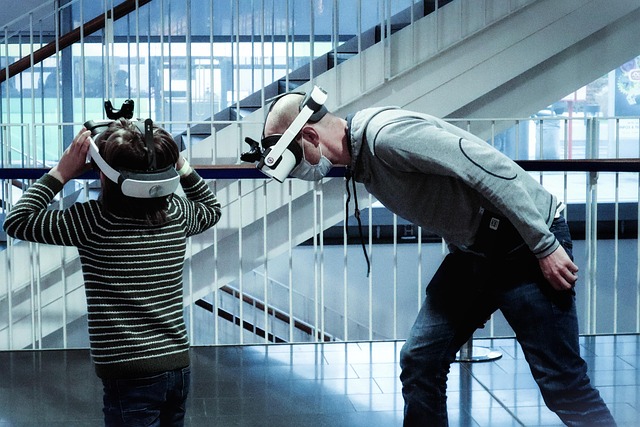As the worlds of virtual reality (VR), augmented reality (AR), and the metaverse continue to expand, so do the complexities of virtual legal situations that can arise within these immersive spaces. Gamers and developers alike find themselves at the intersection of cutting-edge technology and legal frameworks that are still catching up to the rapid evolution of digital environments.
In the realm of VR, players can explore breathtaking landscapes, interact with lifelike avatars, and forge meaningful connections with fellow gamers. However, this newfound freedom raises questions about liability and accountability. What happens if a player is injured while engaging in a VR experience? Will game developers be held accountable for creating environments where virtual injuries can lead to real-world consequences? These virtual legal situations present unique challenges that require careful consideration and understanding.
AR, on the other hand, merges the physical and digital worlds, allowing for a seamless blend of reality and virtuality. Imagine walking down the street and seeing virtual advertisements or characters superimposed on your environment through your smartphone or smart glasses. Yet, with this technology comes the potential for legal issues surrounding intellectual property rights. Artists may find their creations transformed into AR experiences without consent, leading to disputes over ownership and originality.
The metaverse represents a significant leap in how virtual spaces can be utilized, functioning as a collective universe where social interaction, commerce, and entertainment converge. In this digital frontier, players can establish businesses, trade virtual goods, and even acquire virtual real estate. However, the rise of virtual economies also invites a multitude of virtual legal situations. From contracts to digital currency regulations, navigating the legal landscape in the metaverse presents challenges that demand a thorough understanding of both current laws and emerging digital protocols.
Moreover, issues of privacy and data protection are at the forefront of discussions surrounding virtual and augmented realities. With users willingly sharing personal data to enhance their virtual experiences, the risk of breaches and unauthorized data usage escalates. Gamers must be aware of how their information is being used and the potential implications of living within digital realms controlled by corporations with differing privacy policies.
As the gaming industry evolves, so too must our approach to virtual legal situations. Developers, gamers, and legal experts must collaborate to create comprehensive guidelines that address the unique challenges posed by VR, AR, and the metaverse. By fostering dialogue and understanding among all stakeholders, we can safeguard the future of gaming while fully embracing the possibilities offered by these groundbreaking technologies. Navigating virtual legal dilemmas won’t be easy, but it’s essential for ensuring that the joy of gaming remains intact in our ever-expanding digital playground.




